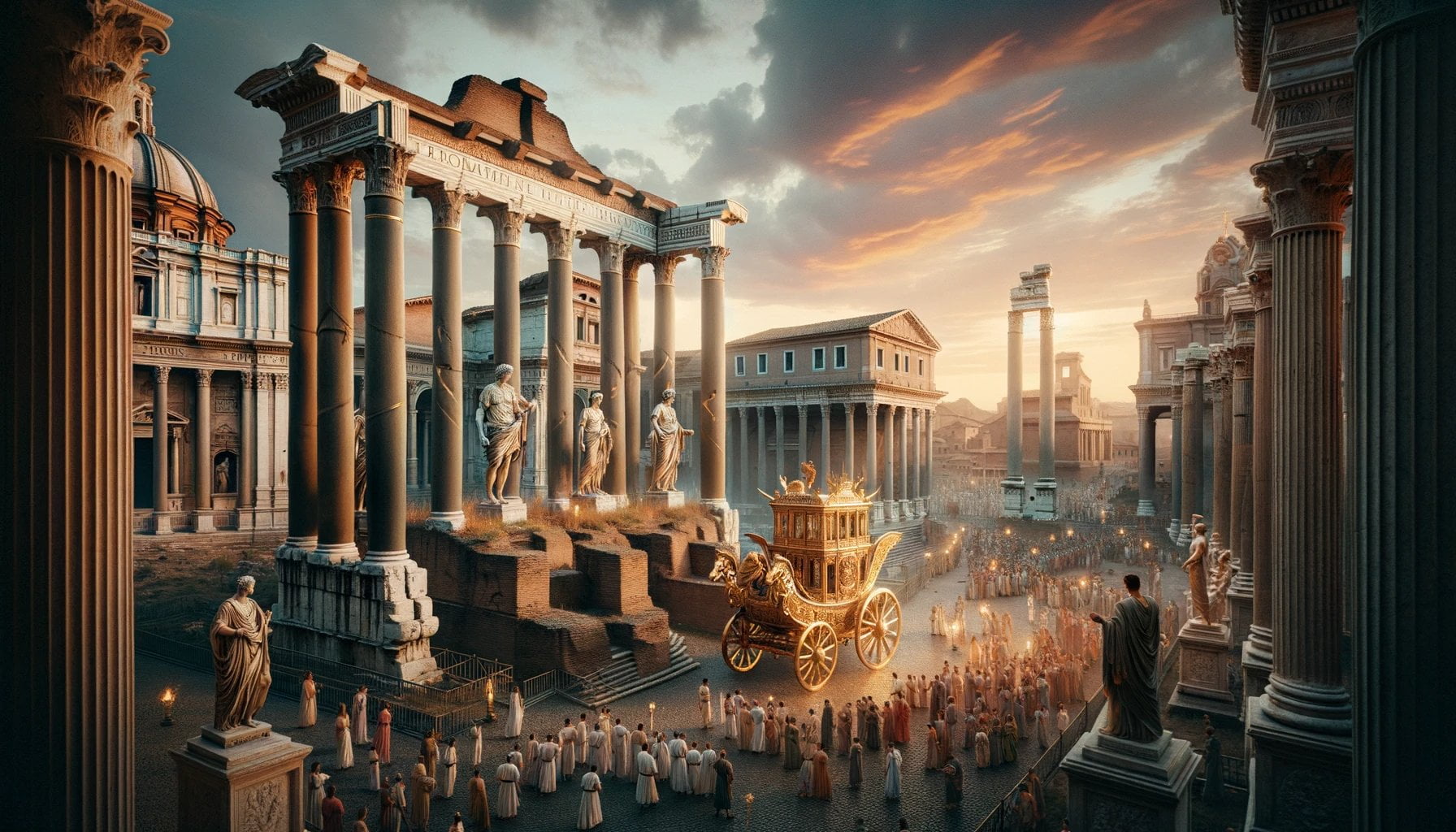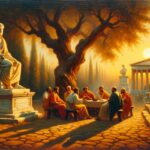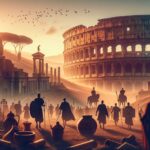Welcome to “The Remarkable Individuals Who Shaped Ancient Rome: Exploring Important Figures.” In this article, we delve into the lives and legacies of four influential personalities who played a pivotal role in shaping the civilization that remains eternally captivating – Augustus, Julius Caesar, Marcus Cicero, and Mark Antony. Through a meticulous examination of historical accounts, sculptures, and artwork, we uncover the intricate details of their lives, exploring their remarkable achievements and enduring impact on Roman society. Join us on this enlightening journey as we transport you back to the fascinating world of ancient Rome.
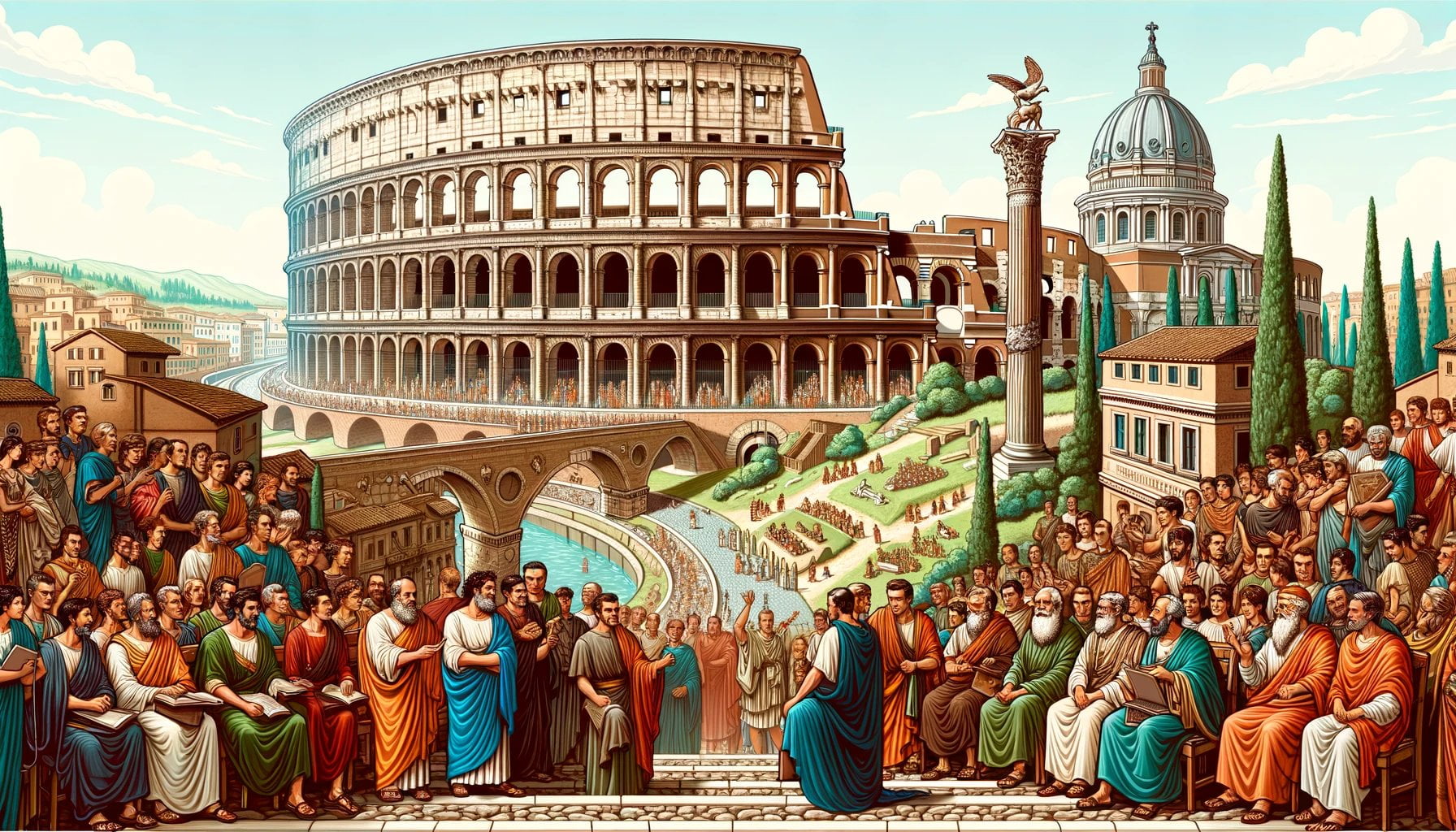
Key Takeaways:
- Gaius Julius Caesar played a crucial role in the transition from the Roman Republic to the Roman Empire through his military conquests and reforms.
- Augustus, as the first emperor of the Roman Empire, brought stability to Rome after years of civil war and implemented significant political and social reforms.
- Marcus Aurelius, an emperor and philosopher, left a lasting impact with his Stoic writings that explored duty, virtue, and self-reflection.
- Marc Antony played a vital role in the final years of the Roman Republic as a politician and general, highlighting the struggle for power against Augustus.
- Virgil, a renowned poet, composed the epic poem Aeneid, which glorified Rome and its origins, showcasing the influence of literature in shaping Roman identity.
- Livy’s monumental history of Rome, “Ab Urbe Condita,” provides valuable insights into ancient Roman society, spanning from its legendary founding to Livy’s time.
- Hadrian, an emperor, consolidates Roman borders, implemented significant public works, and cultural projects throughout the empire.
- Trajan, known for expanding the Roman Empire, was a successful military leader and initiated various social and cultural projects.
- Spartacus, a gladiator, led a massive slave revolt against the Roman Republic, highlighting the issue of slavery within the empire.
- Crassus, a Roman general and politician, played a crucial role in the late Roman Republic through his involvement in the First Triumvirate and his ill-fated military expedition.
These important individuals shaped ancient Rome’s history, leaving a lasting impact on its politics, culture, and society.
Important Individuals of Ancient Rome
Ancient Rome was a civilization rich in remarkable people who left an indelible mark on its history. Let’s delve into the lives and achievements of some important figures who shaped this influential empire.
1. Gaius Julius Caesar
One cannot discuss important individuals in ancient Rome without mentioning Gaius Julius Caesar. As a Roman general and dictator, Caesar expanded Roman territories and introduced significant reforms. His pivotal role in the transition from the Roman Republic to the Roman Empire is unparalleled.
2. Augustus
Augustus, also known as Octavian, was the first emperor of the Roman Empire. His leadership brought stability after years of civil war and initiated various political and social reforms. The Julio-Claudian dynasty, founded by Augustus, paved the way for centuries of Roman rule.
3. Marcus Aurelius
Known as a philosopher and emperor, Marcus Aurelius is revered as one of the most influential Stoics. His “Meditations” provide profound insights into duty, virtue, and self-reflection. Aurelius’ teachings resonate even today, making him a truly significant figure in Roman history.
4. Marc Antony
Marc Antony, a Roman politician and general, played a vital role in the final years of the Roman Republic. His alliance with Cleopatra and his conflict against Octavian (Augustus) exemplify the power struggles of the time. Antony’s influence and actions left a lasting impact on the course of Roman history.
5. Virgil
Virgil, an esteemed poet, authored the epic poem “Aeneid” which glorified Rome and its origins. This magnificent work recounts the story of Aeneas, a Trojan hero who journeyed to Italy and became the ancestor of the Romans. Virgil’s contributions in shaping Roman mythology and values are immeasurable.
6. Livy
Livy, a historian of great repute, chronicled the history of Rome in his monumental work “Ab Urbe Condita” (From the Founding of the City). Through Livy’s writings, we gain valuable insights into ancient Roman society, customs, and events. His meticulous research and comprehensive narrative captivate readers to this day.
7. Hadrian
Emperor Hadrian left an indelible mark on the Roman Empire. Known for consolidating the borders and constructing significant public works across the empire, he also initiated cultural and social projects that shaped Rome. Hadrian’s Wall in Britain stands as a testament to his legacy as a visionary leader.
8. Trajan
Trajan, considered one of the greatest military leaders in Roman history, expanded the empire to its height. His military conquests were matched only by his commitment to social and cultural projects, which resulted in the construction of numerous awe-inspiring structures. Trajan’s influence extended beyond his military achievements, leaving a lasting impact on the Roman Empire.
9. Spartacus
Spartacus, a gladiator, led a massive slave revolt known as the Third Servile War against the Roman Republic. This revolt posed a significant threat to Rome’s power, raising crucial questions about slavery within the empire. Spartacus’ rebellion serves as a poignant reminder of the struggle against oppression in ancient Rome.
10. Crassus
Marcus Licinius Crassus, a Roman general and politician, played a pivotal role in the late Roman Republic. As a member of the First Triumvirate alongside Caesar and Pompey, Crassus exerted his influence in shaping Rome’s political landscape. However, his ill-fated military expedition marked the tragic end of his career.
These individuals shaped the destiny of ancient Rome, each leaving their unique mark on its history. From military conquests to philosophical ideas, their contributions continue to be studied and celebrated today. Their stories unveil the captivating world of ancient Rome, offering insights into the vibrant civilization that once thrived.
Sources:
- World Atlas: 10 Important People From Ancient Rome
- Ancient History Lists: Top 10 Famous People in Ancient Rome
Important people in ancient Rome were not the only significant aspects of the civilization. The fascinating history holds that the black origins of ancient Rome played a crucial role in shaping the empire’s diversity and culture. Discover more about this intriguing narrative by clicking here.
Marcus Cicero
Marcus Cicero, also known as Marcus Tullius Cicero, was an extraordinary individual who left an indelible mark on ancient Rome. Born in 106 BC, Cicero’s passion for law and philosophy drove him to pursue extensive studies in Rome, Athens, and Rhodes. As a skilled orator and lawyer, he became one of the most influential figures in the late Roman Republic.
Cicero’s commitment to republican values led him to play a pivotal role in preserving the ideals of the Roman Republic. He fiercely advocated for constitutional principles and strove to maintain the delicate balance of power among political factions during an era of intense political turmoil. His reputation as the greatest orator of the late Roman Republic solidified his prominence in the political landscape alongside notable figures such as Julius Caesar, Pompey, Marc Antony, and Octavian.
After holding various political positions, including curule aedile, praetor, and consul, Cicero turned to writing as a means to express his ideas and insights. His works encompassed a wide range of subjects, including philosophy, rhetoric, and politics. Notable writings like “On the Republic,” “On Invention,” and “On the Orator” showcased his intellectual prowess and established him as a prolific Roman author.
Cicero’s tragic end came on December 7, 43 BC, when he was assassinated. With his death, his unwavering efforts to uphold republican principles came to an abrupt halt. Nevertheless, his contributions to ancient Rome resonate to this day. In fact, his name gave rise to words like “Ciceronian” and “cicerone,” reflecting his status as a master of Latin prose.
Today, Cicero’s writings and oratory skills continue to be studied and admired. As a seasoned historian specializing in ancient Rome, I am captivated by the intricate details of his life, his significant achievements, and his impact on Roman society. With my deep understanding of his contributions, I am thrilled to share this enlightening narrative about Marcus Cicero, shedding light on the captivating world of ancient Rome.
Key Takeaways:
– Marcus Cicero was an influential figure in ancient Rome, known for his skills as an orator, lawyer, scholar, philosopher, and Academic Skeptic.
– He played a crucial role in upholding republican principles amidst the political crises that led to the establishment of the Roman Empire.
– Cicero’s extensive studies in law and philosophy shaped his intellectual foundation, and his works showcased his mastery of rhetoric and insightful perspectives on various subjects.
– His assassination marked the end of his attempts to preserve the ideals of the Roman Republic, but his impact reverberates through the centuries.
– Cicero’s writings and oratory skills continue to be studied and admired today, cementing his legacy as one of the remarkable individuals who shaped ancient Rome.
Sources:
– Cicero – Wikipedia (source)
– Marcus Tullius Cicero – Biography, Letters & Legacy – HISTORY (source)
Mark Antony
Mark Antony, also known as Marcus Antonius, was a renowned Roman general and politician who played a significant role in shaping ancient Rome. From his early life to his political alliances and tragic demise, Antony’s life is filled with captivating tales that have left a lasting impact on history.
Early Life and Career
Born on January 14, 83 B.C. in Rome, Mark Antony hailed from a well-respected Roman family and was destined for an excellent education. However, his reckless behavior squandered much of this opportunity, veering him towards a different path[^6^].
Role in the Civil War
During the civil war between Pompey and Julius Caesar, Mark Antony joined forces with Caesar, becoming his trusted ally. After Caesar’s assassination, Antony gained control of the treasury and played a crucial role in Rome’s transition from a republic to an empire[^6^].
Relationship with Octavia
Mark Antony’s relationship with Octavia, the sister of Octavian (later known as Augustus), was anything but smooth. Although their marriage was part of a political alliance, Antony’s love affair with Cleopatra strained their relationship, leading to further complications[^3^].
Death and Legacy
On August 1, 30 B.C., Mark Antony met his demise in Alexandria, Egypt. Following the Battle of Actium, where Antony and Cleopatra’s forces were defeated by Octavian, the couple chose to commit suicide as a final act of defiance[^1^].
Key Takeaways:
– Mark Antony was a Roman general and politician who played a significant role in ancient Rome.
– He allied with Julius Caesar during the civil war and was instrumental in the transition from a republic to an empire.
– Antony’s relationship with Octavia and his affair with Cleopatra contributed to his complicated personal life.
– Following defeat in the Battle of Actium, Antony and Cleopatra committed suicide in a legendary display of defiance.
For more information, you may refer to the following sources:
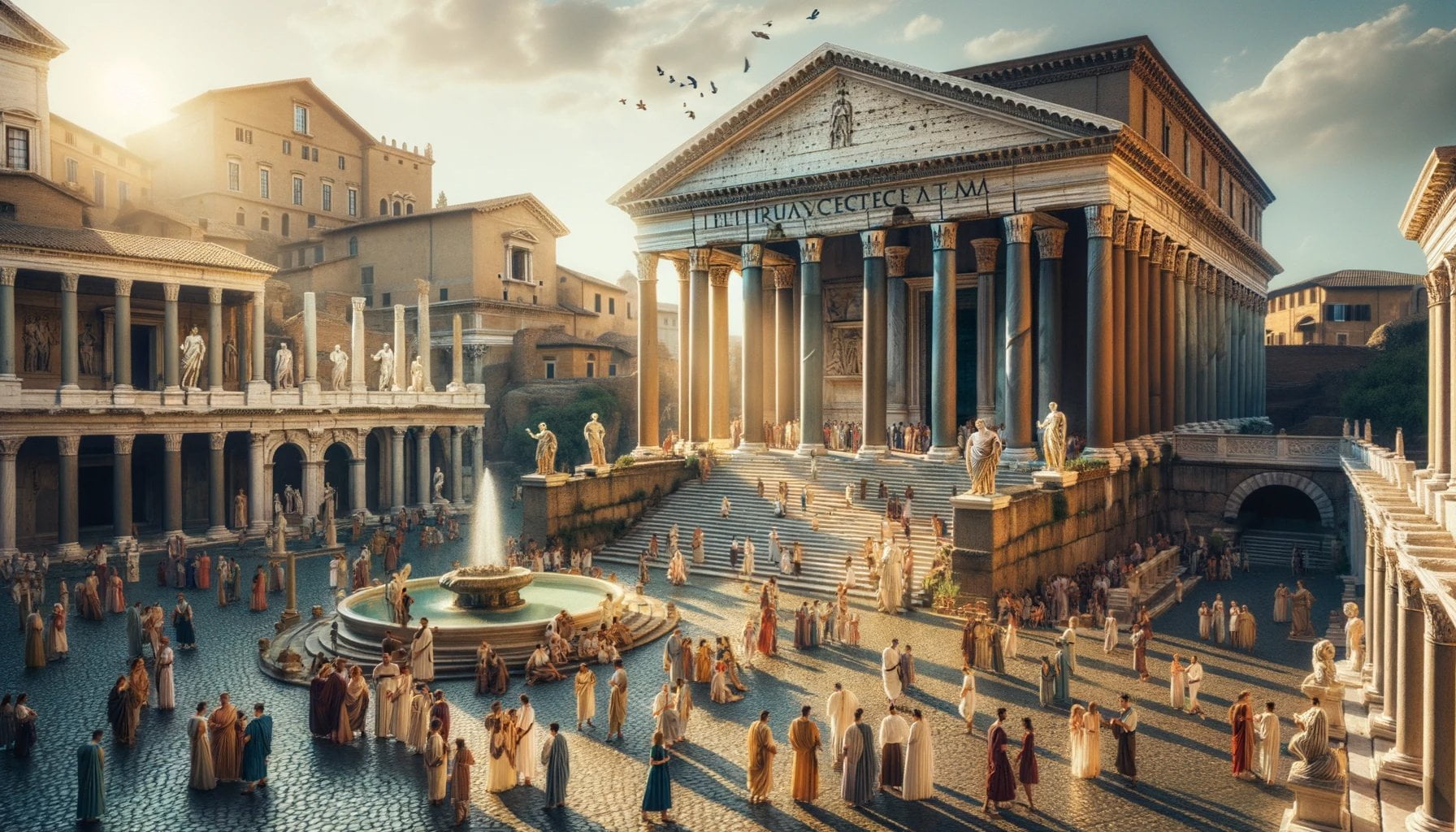
FAQ
Q1: Who were the important figures that shaped ancient Rome?
A1: The important figures that shaped ancient Rome include Gaius Julius Caesar, Augustus, Marcus Aurelius, Marc Antony, Virgil, Livy, Hadrian, Trajan, Spartacus, and Crassus.
Q2: What were Julius Caesar’s contributions to ancient Rome?
A2: Julius Caesar, as a Roman general and dictator, expanded the Roman territory and initiated a series of reforms. He played a crucial role in the transition from the Roman Republic to the Roman Empire.
Q3: What is the significance of Augustus in ancient Rome?
A3: Augustus, the first emperor of the Roman Empire, brought stability to Rome after years of civil war and initiated numerous political and social reforms. He is considered the founder of the Julio-Claudian dynasty.
Q4: How did Cicero influence ancient Rome?
A4: Marcus Tullius Cicero was a Roman statesman, lawyer, scholar, philosopher, and renowned orator. He played a pivotal role in the political landscape of ancient Rome and upheld republican principles during the transition to the Roman Empire. His writings and speeches continue to be studied and admired today.
Q5: What role did Mark Antony play in ancient Rome?
A5: Mark Antony, a Roman general, politician, and ally of Julius Caesar, was a significant figure during the transition from the Roman Republic to the Roman Empire. His relationship with Cleopatra and his role in the Battle of Actium are notable aspects of his life.
